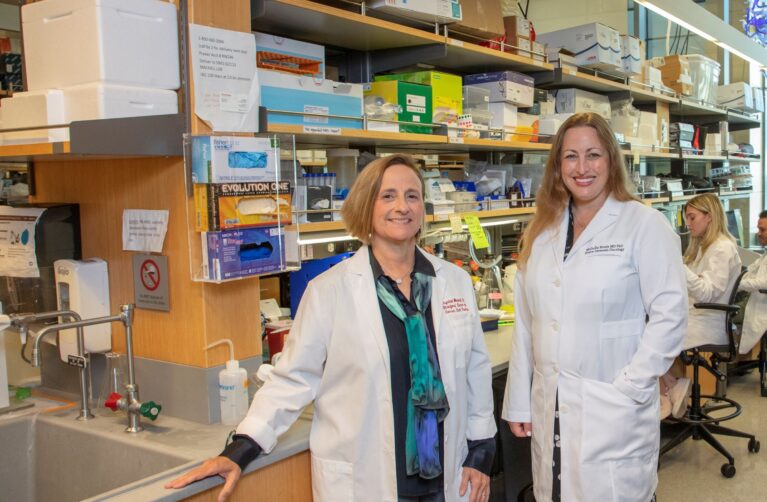Stanford scientist and clinician Michelle Monje, MD, PhD, was recently awarded The Brain Prize for her research to find an effective treatment for diffuse intrinsic pontine glioma (DIPG), an extremely difficult-to-treat pediatric cancer.
Monje, the Milan Gambhir Professor in Pediatric Neuro-Oncology and professor of neurology, has devoted her career to studying DIPG. One of her key breakthroughs occurred when Monje and her team discovered that DIPG is physically and electrically integrated, hijacking the brain’s normal circuitry to fuel the cancer’s rapid growth. Her groundbreaking findings opened a new branch of oncology, cancer neuroscience.
Her research, currently in clinical trials, has led to a new therapy that has huge potential to help children and families facing DIPG and similar cancers. The therapy has received an FDA designation of regenerative medicine advanced therapy, or RMAT—available only to a small group of therapies with immense potential to treat life-threatening conditions. This designation is a major milestone, signaling that the agency will work closely with researchers to fast-track the path to FDA approval.
Breakthroughs Powered by Philanthropy
Dr. Monje’s extraordinary progress has been powered by philanthropy. Make a gift to support her lab’s life-saving research.
The Brain Prize, considered the world’s most prestigious for neuroscience research, comes with an award of $1.4 million to be shared with Frank Winkler, MD, professor of experimental neurooncology at Heidelberg University. The prize is awarded annually by the Danish Lundbeck Foundation to researchers who have made outstanding contributions to neuroscience.
Dr. Monje’s extraordinary progress has been powered by philanthropy. Help her celebrate this milestone by making a gift to support her lab’s vital research.





